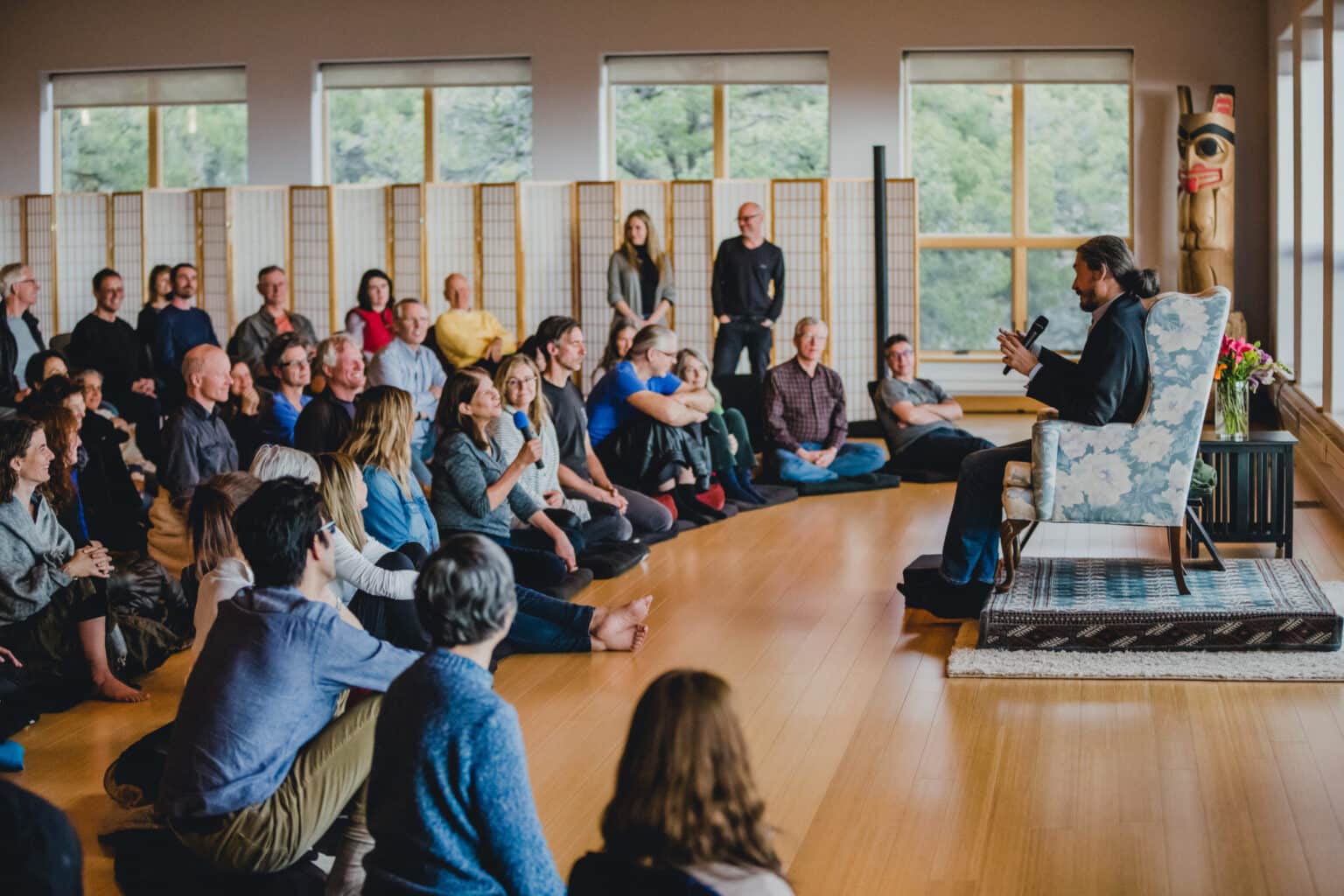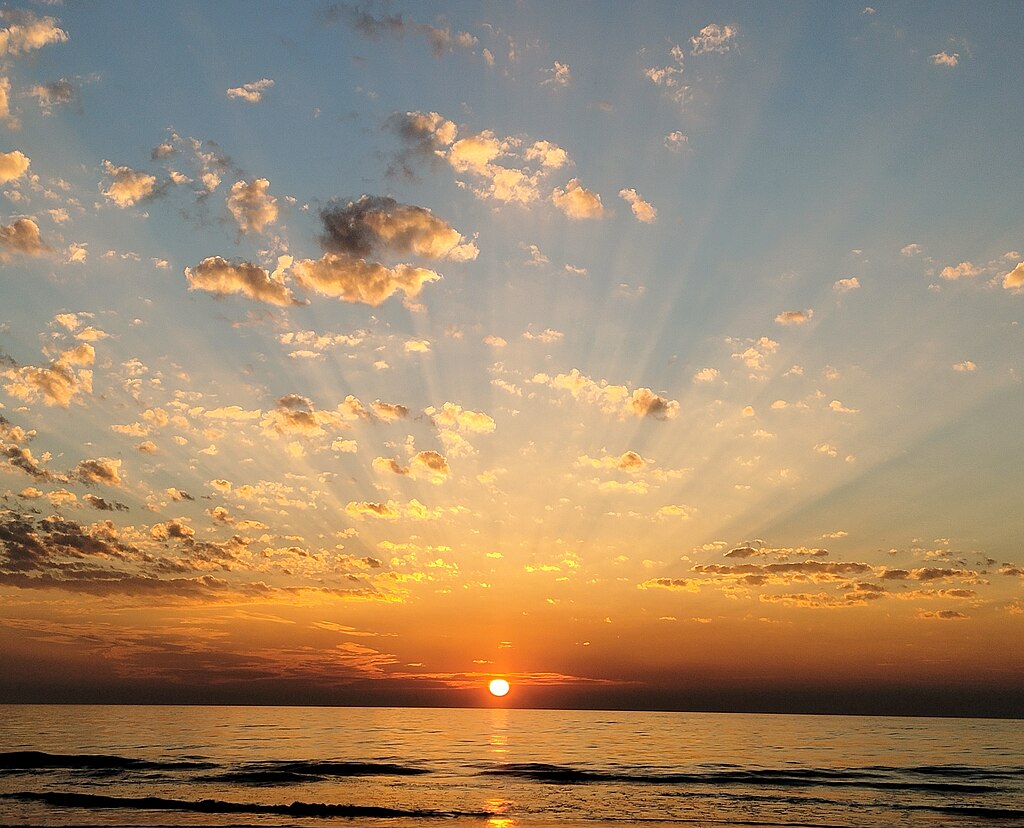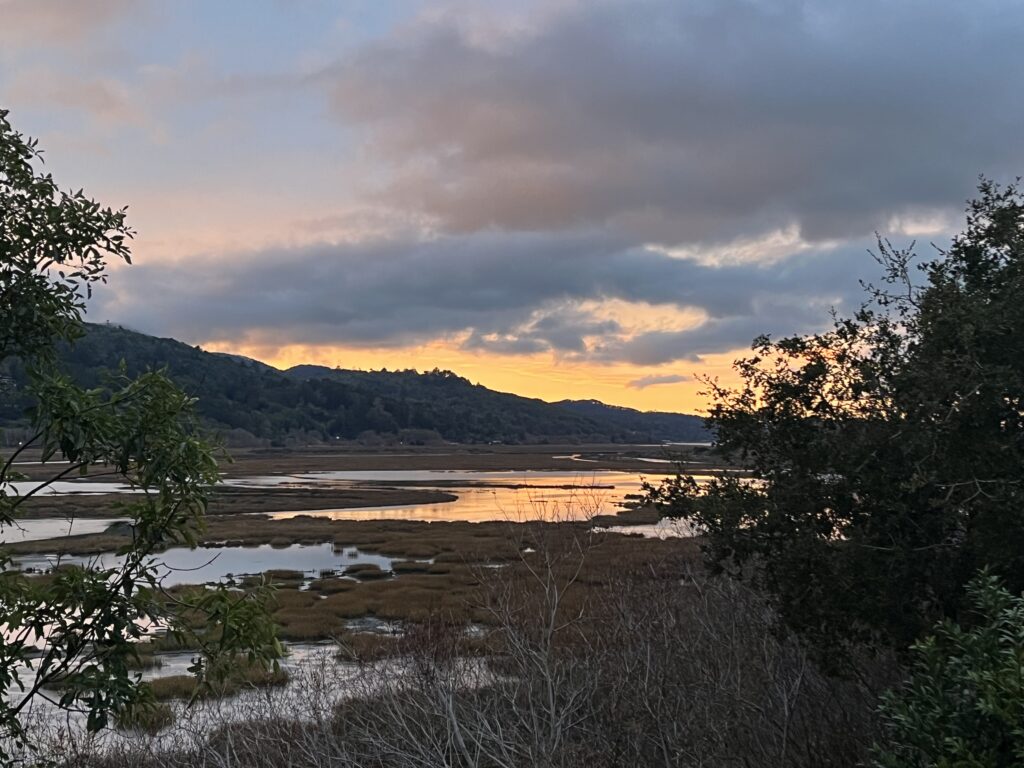Christiana Figueres, the Costa Rican diplomat who played a key role in brokering the Paris Agreement, was renowned for using every conceivable ruse to charm, chivvy, and cajole world leaders to act.
But this week she will address a theme, rarely mentioned in U.N. negotiations, that she sees as the hidden culprit behind 30 years of missed chances to confront the climate crisis: the legacy of collective trauma.
It’s well established that individuals can suffer lasting consequences from traumatic experiences, whether they be a child who survived abuse or a soldier returning from combat. But there is now a growing movement of practitioners working to unravel how communal experiences of war, slavery, racism, genocide, colonialism, gender violence and other forms of oppression can cause shared trauma on a collective scale. Leaders in this emerging field argue that the impact of events that took place decades or even centuries ago, can cascade through generations, silently shaping the destiny of communities, cultures, and nations — and perhaps the planet itself.
In the case of climate change, the sheer insanity of allowing carbon emissions to balloon to the point where the resulting heating threatens all life on Earth has prompted a search for deeper explanations. What lies underneath the perennial deadlocks at climate conferences, or the enduring grip of the fossil fuel lobby on the way we order our lives?
“Why is this happening? Yes, it’s because of concentrations of greenhouse gases. Fine. What else is there? What else? What is the human factor that has allowed us to this situation without having addressed climate change for decades?” Figueres will ask the online Collective Trauma Summit 2022, which begins September 28, according to a pre-recording of her interview seen by DeSmog.
That a climate figure as prominent as Figueres is participating in the event alongside psychiatrists, indigenous leaders, activists, and authors such as Terry Tempest Williams and Bayo Akomolafe, shows how campaigners are increasingly breaking traditional silos to reckon with the inner dimensions of the crisis.
Figueres is among those who argue that the industrialized world’s failure to mount a meaningful response to climate change is itself a symptom of collective trauma, rooted in patterns of exploitation handed down over generations. Others liken the way people who suffered early adversity often resort to self-medicating their pain to society’s pursuit of endless, fossil fuel-powered economic growth. Could this apparently suicidal addiction represent an attempt to push away some deeper, long-forgotten collective wound? And could politicians’ apparent paralysis in response to the threat mirror the way individuals with significant trauma may go emotionally numb, or avoid potential triggers, rather than acknowledge their deepest hurt?
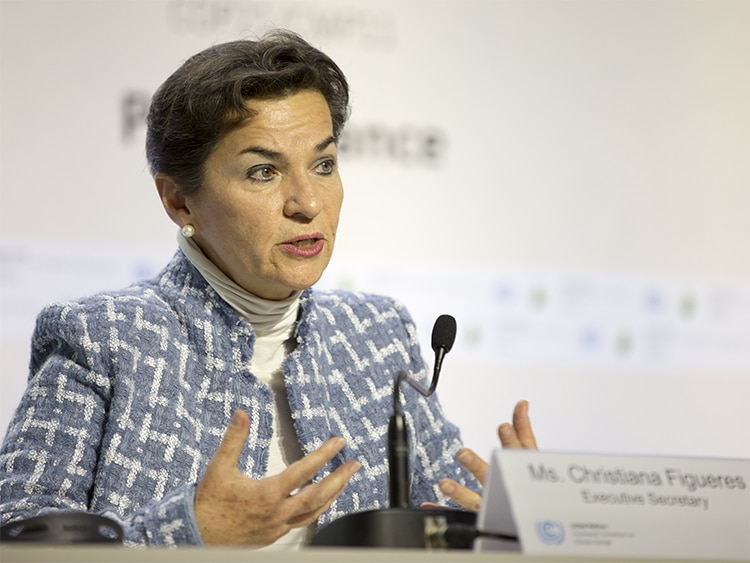
Over the past few years, I’ve come to see collective trauma as a powerful — if mostly neglected — explanatory lens to better understand our many crises. Whether documenting the struggles of British military veterans and their families in my book, Aftershock, or covering the climate crisis, I’ve begun to notice unexpected connections between the kind of symptoms trauma can cause at the individual, cultural, and global level. Seeking to deepen my understanding of this hidden-in-plain-sight phenomenon, I’m participating in a two-year training program with Thomas Hübl, the Austrian teacher and facilitator who created the annual summit, in which I’m serving as a co-host this year.
From this vantage point, I see the collective trauma healing and climate movements as natural allies. Indeed, it is hard to see how either could succeed alone. If the analysis offered by Xiye Bastida, a 20-year-old activist from the Otomí community in Mexico, is correct, then climate campaigners need new tools to change the thought patterns that drive the crisis — rather than forever placating their symptoms.
“The climate crisis is the consequence of a mindset: The mindset that people can be oppressed, that you can go to new territories, loot them, appropriate them, and get rich from them,” Bastida says in remarks prepared for the nine-day summit. “The mindset that created this crisis cannot be the same mindset that we use to solve it.”
Hidden Legacy
Psychologists have long noted that trauma can be passed down a family line, as parents inadvertently recreate the abusive or neglectful atmospheres in which they themselves were raised. But an equivalent mechanism seems to affect entire generations, Hübl writes in his 2020 book, Healing Collective Trauma, driving repetitive cycles of violence, prejudice, and dysfunction. Whether our ancestors were victims or perpetrators, or a mixture of both, the past shapes our perceptions of what should pass for “normal” behavior in insidious ways, coloring the environment into which we’re born.
In terms of global heating, the manifestations of collective trauma can be seen at every scale. Wealthy countries, who did the most to cause the crisis, deny any responsibility for reparations — known in climate jargon as “loss and damage” — perpetuating traumatic colonial and imperialist patterns of exploitation. Fossil fuel executives press ahead with plans to exploit new oil and gas reserves, rationalizing the harm such projects will cause with the self-serving logic settler classes once used to subjugate Indigenous tribes.
The kind of grandiosity, manipulation, and blame-shifting that can emerge as defenses against childhood trauma are so often evident among leaders in politics, business, and finance that the mostly passive acceptance of this state of affairs could itself be seen as a symptom of mass numbing caused by collective trauma. Perhaps the most glaring symptom of all is simply denial: Not only the active misinformation campaigns financed for years by Big Oil to undermine climate science, but the widespread failure at almost every level of society to acknowledge the urgency of the crisis. Then there is the tendency of governments and right-wing media to attack the activists who are doing the most to raise the alarm.
Such problems can seem too entrenched to contemplate. Nevertheless, just as I’ve known soldiers who managed to escape nightmarish trauma symptoms with the right support, so can repetitive historical cycles be broken, when people come together intentionally in community.
“The mindset that created this crisis cannot be the same mindset that we use to solve it.”
– Xiye Bastida
Blending insights from neurobiology and ancient wisdom traditions, Hübl represents a growing cohort of practitioners who work with groups of hundreds, even thousands, of people at a time to address collective wounds, from the Holocaust to racism and gender violence. Typically, collective trauma healing takes place over a period of days. Facilitators work to establish safety and trust, before leading groups into ever-deepening encounters with material from the past. The process can be rocky: Long-buried ancestral pain erupts to the surface, to finally be felt fully and released. As the frozen layers of this psychological “permafrost” thaw, stagnant emotion liquefies into a deeper capacity for the insight and empathy needed to build a better future.
In his 2019 paper Climate Trauma: Toward a New Taxonomy of Trauma, ecopsychologist Zhiwa Woodbury argues that mainstream psychology has faltered in its response to climate change by focusing mostly on how hurricanes, droughts, or other disasters affect victims’ mental health.
“Are we conflating symptoms and disease here?” Woodbury writes. “What if, rather than thinking of trauma as being a potential symptom of episodic events associated with climate change…climate change itself were to be considered as a new, superordinate form of trauma?”
The concept of “Climate Trauma” thus recognizes that the climate crisis is not an event but a continually occurring reality unfolding in real time, bringing life as we’ve always known it crashing down, and simultaneously shaping a new, foreign future. The scale of the destruction man-made warming is causing, and will cause, isn’t only affecting every culture — it’s changing the very definition of what it means to be human.
It follows that if we’re going to reckon with our climate trauma, we need to draw on collective healing practices to come together to acknowledge the feelings of helplessness, shame, fear, and grief we’re holding — and tap into the wisdom that lies on the other side.
“How can we come to recognize the dark as part of ourselves so we may integrate its lessons and through them be transformed?” Hübl writes in Healing Collective Trauma. “And how would such healing, on a collective scale, advance the care of the planet that is our home?”
The Power of Communities
Summit guests Skeena Rathor and Gail Bradbrook of civil disobedience movement Extinction Rebellion are working to offer a living answer to that question with their new project, XR Being the Change.
Following the work of the psychiatrist and philosopher Iain McGilchrist, neuroscientist Jill Bolte Taylor, and others, Rathor and Bradbrook argue that humans are capable of two broad modes of thought: An intuitive, holistic way of seeing that appreciates the interconnected web of life; and a self-centered, calculating sensibility that shades more easily into domination and control.
That more egocentric style of thinking — which can be sparked by existential crises or trauma — leads to the increasingly violent extraction of resources from our neighbors and nature, in turn generating mutually-reinforcing waves of collective trauma. The result: Today’s globalized economy that extracts, exploits, and excretes pollution, constantly shapeshifting to resist change, while seducing or pressing whole populations into its service.
“Some call it the power-over paradigm, the war and domination paradigm. Some call it patriarchy, some call it whiteness. And they’re all slightly different and part of something that feels like a disease, a mass disease, and a degeneration of our humanity,” Rathor, a veteran political activist who has trained in multiple trauma healing techniques, said in a summit interview.
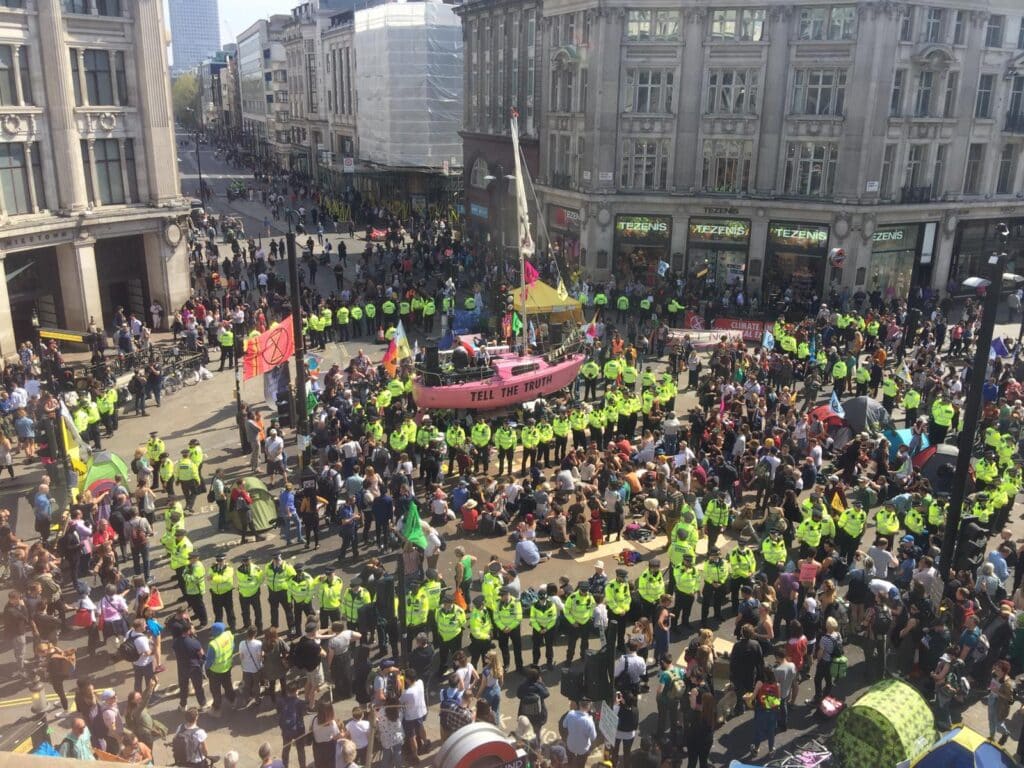
XR Being the Change aims to learn from communities and cultures around the world that have managed to resist this paradigm, while organizing acts of repair and resistance that connect local to global struggles.
“You’ll have frontline communities that are in resistance and literally fighting with their bodies, willing to put their lives on the line,” Bradbrook said in dialogue with Rathor. “How are we supporting that frontline resistance? How are we working with employees within institutions that are complicit that don’t want to be?”
Hailing from the Bhutia community indigenous to the Tibetan plateau, Dekila Chungyalpa told the summit that she has also experienced the transformative power of community, thanks to her Karma Kagyu lineage of Tibetan Buddhism.
“One of the reasons why I push people so much towards community action is because we know it works on so many levels. It heals us, first of all, from eco-anxiety,” said Chungyalpa, who now runs the Loka Initiative, a faith-led environmental action platform at the University of Wisconsin-Madison. “And it heals what the planet is going through, right? We know that collectively we’re just much, much stronger than we are as individuals.”
Some argue that systemic change’s best hope may be to build a sufficient critical mass of these kinds of small- and large-group processes to catalyze the kind of sudden shift that few saw coming — the collapse of the Berlin Wall or the Arab Spring, for example. In her book You Matter More Than You Think, Karen O’Brien, a former Intergovernmental Panel on Climate Change social scientist, makes a similar case, drawing on insights from quantum social change to argue that positive tipping points can arrive much faster than many might assume.
A Journey Best Shared
In my experience, the kind of collective trauma healing resources and competencies that Hübl and other practitioners teach are precisely the skills we need to build communities, teams, and social movements capable of driving the rapid transformation demanded by the climate crisis.
It starts with leaders learning to be trauma-informed and bringing these skills into their organizations. By supporting each individual to develop the capacity to slow down, communicate more precisely, and attune to those around them, it becomes much easier to address the subtle influence of unacknowledged trauma that might otherwise derail a project.
Even simple practices can help build more collaborative cultures. For example, teams might start meetings with brief personal check-ins, and then integrate more advanced, multi-day processes, all of which can help build trust, improve morale, and align members with a clear mission. When groups build greater coherence in this way, a mysterious X-factor — Hübl calls it “collective intelligence” — kicks in and transformation can often unfold in delightfully surprising ways.
Finally, these tools can be applied at high-stakes moments. Collective trauma facilitators are skilled at holding groups together even as individuals grapple with intense feelings of fear, shame, anger, and grief. Such capacities could be readily adapted to support make-or-break negotiations — such as U.N. climate talks. The basic principles of trauma-informed leadership could equally be adapted to overcome the frictions that inevitably arise in movement building.
“We are standing in front of a portal that we are beginning to walk through, and that is going to take us to understand, and experience, a much higher version of ourselves.”
– Christiana Figueres
Some will say that focusing on trauma is at best marginal, and at worst a distraction from the urgent task of challenging the economic and political structures driving climate breakdown. Others will argue that without also confronting the legacy of collective trauma, it would be pointless to even try. For Figueres, a former U.N. climate chief, the crisis is not just the greatest threat humanity has faced — it’s also its biggest opportunity.
“I very deeply sense that we are not standing at the precipice of the doom of the human species,” Figueres said. “But rather that we are standing in front of a portal that we are beginning to walk through, and that is going to take us to understand, and experience, a much higher version of ourselves.”
For that rebirth to happen, we will first need to explore the depths of the darkness we carry within. It is a journey best shared.
Matthew Green is the global investigations editor at DeSmog. He is also a co-host of the Collective Trauma Summit 2022 and a student on Thomas Hübl’s two-year Timeless Wisdom Training program. He writes the Resonant World newsletter on healing collective trauma. To watch summit interviews, register at the website. Interviews can be watched for free for up to 48 hours after they are first shown.
Subscribe to our newsletter
Stay up to date with DeSmog news and alerts


